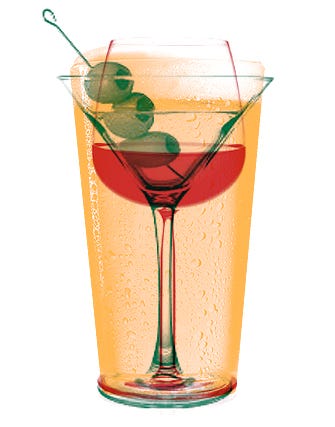Have Scientists Found The Self-Control Spot In The Brain?
 Illustrated by Gabriela Alford.
Illustrated by Gabriela Alford.This area of the brain might regulate how badly a person perceives the physical consequences of drinking, so inactivating it could prevent your body from feeling the averse effects of overindulging. Or, it might impair learning — so it could be that the rats were less able to learn from the negative outcomes of their drinking. Of course, further studies are definitely needed to get a better picture of how this mechanism works. But, the fact that we may have found the part of the brain that prevents us from going overboard could potentially play a huge role in the way we understand and treat not only alcoholism but also binge eating and drug abuse.
(ScienceDaily)






